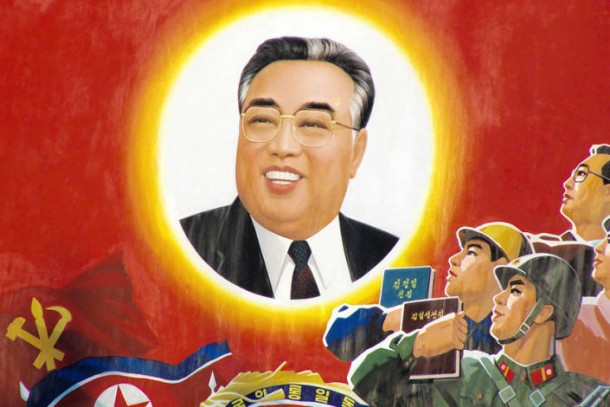NORTH KOREA. The beginning of April, marked by the live-fire drill occurred at sea between South and North Korea, once again reminded the international community of the Korean stalemate with nuclear aspects. In this regard, the political situation in North Korea and its uncertain future remains to be the “blistering brainteaser” for many experts who consider the Korean “settlement” the main issue for stability in the region.
The enigmatic country with one of the most closed and oppressive regimes in the world is hard to be analysed by foreign media due to a lack of information. Kim Jong-Un, the supreme leader of North Korea, dubbed by media as “the youngest dictator” (for his young age), started his tenure at the beginning of 2012 and carries on with the politics of being a “worthy” heir of his father and grandfather Kim Jong-Il and Kim Il-Sung, who were notorious tyrants. The facts of his reign, oppression of discontent and closed borders, prove that North Korea is rather on its nonstop conduit of tightening the screws than on the trail towards liberalization. More to the point, the last year’s execution of leader’s uncle was also signal of ongoing purge within the political elites.
Furthermore, Pyongyang continues its politics of constant rhetoric with the “outside world”. However, the foreign enemies (mainly South Korea, USA and Japan) are getting used to these provocations. Last year’s statement of Kim Jong-Un to its forces, saying that they have to be prepared for war at any time, only slightly affected the permanent “high alert” situation in its southern neighbour. Pyongyang is aware of the impossible positive outcome of military collision with the South Korea – USA tandem. The propaganda constantly is mainly focused towards its population as it helps to maintain the state of mobilization, demonstrating a need to society to continue expensive military programs.
Clearly, South Korea is the main political antagonist for the North Korean regime. North Korean officials are paranoiac with the fixed idea about the goal of its southern “brothers” to absorb its state. In this respect, Pyongyang hopes to patch up its totalitarian, monarchic political system without far-reaching transformations. Nevertheless, it is unsure how long economic and information globalization processes can continuously be kept outside national borders.
It is cynical to claim that the local population still believes in the socialist paradise promoted by the predecessors of the present leader. Alleged famines have worn the population out. In fact, if North Korean authority wants to maintain its state independent, the elites needs to elaborate a new “national idea”, soften the “control”, and reject the politics of isolationism and militarism. For that reason, Pyongyang needs to shift the main emphasis on increasing the living standard of the population.
Analysts draw attention to the existing “black” trade sector, formed by the representatives of administrative, regional and party organs parallel to the inefficient dilapidated public sector. This is a natural phenomenon in repressive states. Considering the necessary economic changes the lifting of sanctions against North Korea would be very important. Major reform seems unlikely however, and if initiated may easily lead to social upheaval.
The other problem is China, the largest economic donor of North Korea. As soon as China withdraws its support, the regime in North Korea will not last long. Beijing wields serious leverage to influence the North Korean economic situation, but has an ambiguous position towards the North Korean despotic regime. It prioritizes maintaining the North Korean ruling family in power because it fears the perilous consequences for its own national security in case of the collapse of the regime in Pyongyang. Demise implies the risk of chaos on its border in terms of the refugee flows, and also the possibility of a shift of South Korean and US troops. Hence, China’s main efforts are directed to ensure the level of stability required for the North Korea as a buffer state. Additionally, in the future, Beijing seems able to increase its influence over North Korea via the economic expansion and the formation of pro-Chinese elites groups within the country.
Furthermore, if Chinese authorities want to stop Pyongyang from launching rockets, it will not even threaten with sanctions or respond the outrageous military threats of North Korea. They could simply cut off the channels of food and energy supplies to Pyongyang.
It is evident that Pyongyang must at some point search for ways to get out of isolation and at least partially ease its confrontation with the outside world. Steps towards the West on attempting to compromise in the nuclear program’s issue and reduction of its aggressive rhetoric towards its neighbours (South Korea and Japan) can create favourable conditions for the reform and modernization of the country and those in turn improve the relations with international community. At the same time, it is quite doubtful to reckon that Western elites will agree to such deal, as the unification of two Koreas remains on top of their agenda.
Finally, even though there are experts that consider Kim-Jong-Un as to possibly a moderate leader, it is quite unrealistic yet to hope for “new” North Korea or unified Korea in the near future.

